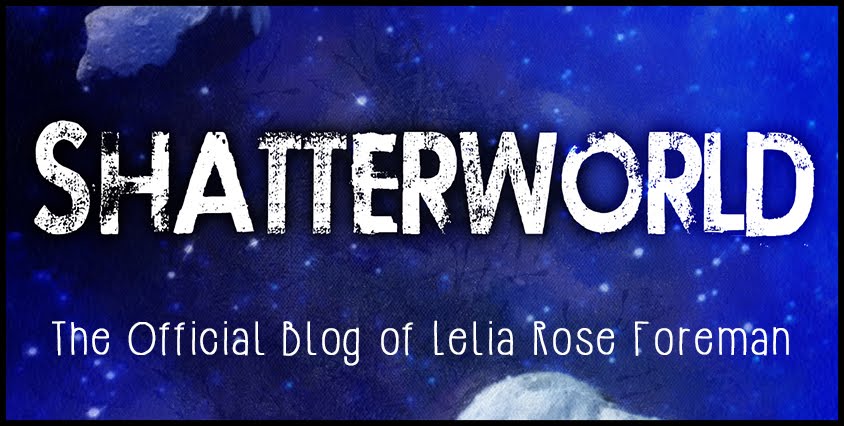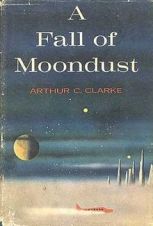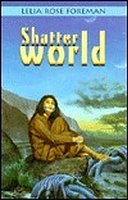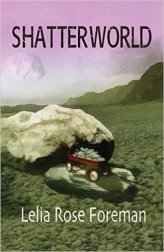Wednesday, December 7, 2016
Robert Don Hughes
I'm so happy I got permission from the company that reissued the Pelmen
the Powershaper series by Robert Don Hughes to use excerpts from his
books in the Writing Speculative Fiction textbook. And he's still alive!
I forget if he was a missionary or a professor when he supplied an
endorsement for the very first version of Shatterworld so many years
ago, but I'll always be grateful to him for that.
Tuesday, November 29, 2016
Embarrassment
Well,
I'm embarrassed. I have a story in the Fantastic Creatures anthology.
That's not what embarrasses me. I was told to write a family-friendly
story, so I wrote one thinking age 6-8. So I wrote a very simple story,
simplistic even. The anthology is out now, and my story is the simplest,
aimed at the youngest reader story in there. But even that doesn't
embarrass me, though I now wish I had written something a little more
complex about a kappa and a maneki-neko. *shrug* What's done is done.
Here's what embarrasses me. Someone read the book and left a good review but let the editor know I had made a mistake. It's been thirty years since I lived in Japan, but I remembered the honorific -san added to names. Adding -chan to a name indicates affection toward a child. -san indicates honoring an older or more authoritative person. So I had the little girl call her mother mama-san. I didn't think to track down one of my far-off Japanese friends to ask them to read through the story. I should have.
The reader told the editor that mama-san means the owner of a brothel.
Ack!!!! Fixitfixitfixitfixit! I wrote to the editor every few hours until she said she had sent the correction to the formatter. In the meantime I don't know how many hundreds of people downloaded the free book before it was fixed. My kindle version still has mama-san. When the print books arrive, I hope the mama-san has been changed to mama. If not, I guess I'll go through and cross out the -san.
Oh, man....My oldest son is always editing my writing, telling me, um, Mom, did you know this phrase was dirty? And my reply is always, Really?... I don't even want to ask what I inadvertently said.
So, if you get a hard copy with mama-san in it, could you kindly cross out the -san?
https://smile.amazon.com/Fantastic-Creatures-…/…/ref=sr_1_1…
Here's what embarrasses me. Someone read the book and left a good review but let the editor know I had made a mistake. It's been thirty years since I lived in Japan, but I remembered the honorific -san added to names. Adding -chan to a name indicates affection toward a child. -san indicates honoring an older or more authoritative person. So I had the little girl call her mother mama-san. I didn't think to track down one of my far-off Japanese friends to ask them to read through the story. I should have.
The reader told the editor that mama-san means the owner of a brothel.
Ack!!!! Fixitfixitfixitfixit! I wrote to the editor every few hours until she said she had sent the correction to the formatter. In the meantime I don't know how many hundreds of people downloaded the free book before it was fixed. My kindle version still has mama-san. When the print books arrive, I hope the mama-san has been changed to mama. If not, I guess I'll go through and cross out the -san.
Oh, man....My oldest son is always editing my writing, telling me, um, Mom, did you know this phrase was dirty? And my reply is always, Really?... I don't even want to ask what I inadvertently said.
So, if you get a hard copy with mama-san in it, could you kindly cross out the -san?
https://smile.amazon.com/Fantastic-Creatures-…/…/ref=sr_1_1…
Here
be dragons ... and selkies and griffins and maybe even a mermaid or
two. Twenty fantasy authors band together to bring you a collection of
thrilling tales and magical monsters. Do you like to slay dragons? Or
befriend…
amazon.com
Saturday, November 12, 2016
Fantastic Creatures Anthology
I have a story in the Fantastic Creatures Anthology put together by the Fellowship of Fantasy.
Wednesday, August 17, 2016
New Project!
I am so excited about a project I have begun. The shiny thing has
interfered with my work on the Tales of Talifar series, but it's so
SHINY! I am putting together an elective high school course aimed at
homeschools and private schools titled WRITING SPECULATIVE FICTION:
Science Fiction, Fantasy, and Horror. Janeen Ippolito, a teacher, is
collaborating with me, and publisher has already asked for the textbook
and package.
I will be citing works not only from the old masters, but also from present day indie writers. Those of us whose books will not end up on library or book shelves unless we know the managers. I hope to introduce high school students to writers they don't yet know exist.
I will be citing works not only from the old masters, but also from present day indie writers. Those of us whose books will not end up on library or book shelves unless we know the managers. I hope to introduce high school students to writers they don't yet know exist.
Monday, June 27, 2016
Happy-making book review
This review of Circumnavigation of Shatterworld made me happy.
https://www.amazon.com/review/R2UUIT79EHM8MJ?_encoding=UTF8&ASIN=B01EPPHN0K&cdMSG=addedToThread&cdPage=&channel=detail-glance&newContentID=Mx3T3ME0DFZJXMR&newContentNum=1&nodeID=283155&store=books#CustomerDiscussionsNRPB
https://www.amazon.com/review/R2UUIT79EHM8MJ?_encoding=UTF8&ASIN=B01EPPHN0K&cdMSG=addedToThread&cdPage=&channel=detail-glance&newContentID=Mx3T3ME0DFZJXMR&newContentNum=1&nodeID=283155&store=books#CustomerDiscussionsNRPB
Friday, June 17, 2016
Remembering North Pole
Yesterday I was talking to the guy fixing my computer. (When I don't hate my computer, I love it.) He was trying to explain computer stuff to me, and I was talking about other stuff. He wanted to know about all the novels I have saved in the computer and in the course of conversation I mentioned that from time to rarely time I'll save the novels on a thumb drive and wrap the thing in aluminum foil in the case of an EMP pulse or a Carrington Event. He said that wasn't the best way to save them, but he didn't say what was as he talked about a Russian missile meant to use an EMP pulse to incapacitate some enemy in a war. Later I mentioned the house we are building will use metal studs instead of wood and a metal ceiling as we try to build a house our autistic daughter can't destroy. He thought I wouldn't need to worry about an EMP. That's right. We're going to be living in a giant Faraday cage.
And all that got me to thinking about North Pole and I'm remembering how much fun it was to live in North Pole, Alaska in a log house on a street named after a famous Husky sled dog, across the freeway from the forty-foot tall Santa Claus statue next to the Santa House where the Millers sold trinkets made in China to tourists from Germany.
We had to wrap all our electronics in aluminum foil or they would quit working in a few days to weeks because we also lived close to KJNP radio station. King Jesus North Pole. We would pick up the phone to call someone and we could hear what they were broadcasting. We had to talk over announcements like Jimmy Whitefish wants to meet Stan Happy at the confluence of the (Aluet name and Aluet name) Rivers in five days. And Everybody in (Yupik name of a village of 60 people) wish Grandma Jenn a happy birthday. During the day KJNP broadcast news and announcements to the Alaskan Bush. At night, they beamed sermons into Russia. Their broadcast was so strong they got fan mail from as far away as New Zealand.
I loved the missionaries who lived in tiny log cabins on the grounds of KJNP. The owner of the station was a millionaire who slept in the men's barracks and wore shirts that were older than I was. (Yes, this was some decades ago).
Maybe because Alaska was the Last Frontier, or Last Resort, or the last place you can go before you end up on an iceberg, eccentric people abounded and were tolerated. If you went to a play or concert, there would be a woman in slinky formal dress and high heels on one side of you, and on the other a wooly man in carhatt's and mukluks.
When it was -30 or below, the kids would tumble on the gym mats I laid on the floor of the basement and watch Princess Bride and UHF and memorize the dialogue. The autistic daughter only wanted to watch Who Framed Roger Rabbit. Twice a day, from beginning to end.
The public school system encouraged homeschoolers and handed out all the curricula a family could want. For them, the largest part of the education budget was running heated buses from isolated cabin to isolated cabin. Once the temperatures dipped below -30, no one but the teachers were required to go to school, but you could go if you were willing to risk your life.
One of the things I discovered and really liked about Alaska, was if you pull over to the side of the road (which I needed to do whenever my autistic daughter assaulted me) people will stop to check up on you.
I loved the moose ambling through the yard, the rabbits, the foxes. Not the mosquitoes. Instead of going for walks, my husband and I rode bikes together in an attempt to stay ahead of the clouds of mosquitoes.
Yeah, North Pole was fun.
And all that got me to thinking about North Pole and I'm remembering how much fun it was to live in North Pole, Alaska in a log house on a street named after a famous Husky sled dog, across the freeway from the forty-foot tall Santa Claus statue next to the Santa House where the Millers sold trinkets made in China to tourists from Germany.
We had to wrap all our electronics in aluminum foil or they would quit working in a few days to weeks because we also lived close to KJNP radio station. King Jesus North Pole. We would pick up the phone to call someone and we could hear what they were broadcasting. We had to talk over announcements like Jimmy Whitefish wants to meet Stan Happy at the confluence of the (Aluet name and Aluet name) Rivers in five days. And Everybody in (Yupik name of a village of 60 people) wish Grandma Jenn a happy birthday. During the day KJNP broadcast news and announcements to the Alaskan Bush. At night, they beamed sermons into Russia. Their broadcast was so strong they got fan mail from as far away as New Zealand.
I loved the missionaries who lived in tiny log cabins on the grounds of KJNP. The owner of the station was a millionaire who slept in the men's barracks and wore shirts that were older than I was. (Yes, this was some decades ago).
Maybe because Alaska was the Last Frontier, or Last Resort, or the last place you can go before you end up on an iceberg, eccentric people abounded and were tolerated. If you went to a play or concert, there would be a woman in slinky formal dress and high heels on one side of you, and on the other a wooly man in carhatt's and mukluks.
When it was -30 or below, the kids would tumble on the gym mats I laid on the floor of the basement and watch Princess Bride and UHF and memorize the dialogue. The autistic daughter only wanted to watch Who Framed Roger Rabbit. Twice a day, from beginning to end.
The public school system encouraged homeschoolers and handed out all the curricula a family could want. For them, the largest part of the education budget was running heated buses from isolated cabin to isolated cabin. Once the temperatures dipped below -30, no one but the teachers were required to go to school, but you could go if you were willing to risk your life.
One of the things I discovered and really liked about Alaska, was if you pull over to the side of the road (which I needed to do whenever my autistic daughter assaulted me) people will stop to check up on you.
I loved the moose ambling through the yard, the rabbits, the foxes. Not the mosquitoes. Instead of going for walks, my husband and I rode bikes together in an attempt to stay ahead of the clouds of mosquitoes.
Yeah, North Pole was fun.
Monday, May 23, 2016
I love this review of Pacifists' War
Pacifists’ War (Shatterworld Trilogy, Book 3) by Lelia Rose Foreman
A while back I reviewed Shatterworld
(Shatterworld Trilogy, Book 1). It was a wonderful “Pilgrim” space
story with excellent world-building, amazing aliens, and a smart heroine
named Rejoice.Pacifists’ War picks up years later. Rejoice is married, has children, still looks to the stars, and still loves the hexacrabs. But life is about to change when a new group of colonist arrive with opposing views on all of life. Let the conflict begin!
The thing I enjoyed most about this book was the realism mixed so firmly and beautifully in with the science fiction. Hexacrabs are just the beginning of all the strange and dangerous life surrounding the colonists. But it’s the real life marriage problems, health issues, damaged relationships, broken trust, sin, and very real humanity that sucks you into this story and keeps you reading, reading to find out if all that is broken can be redeemed. There were many times when I felt emotionally drained by the book because the relationship issues were so realistically portrayed. And, trying not to spoil, the ending was the refreshing hope you longed for through the whole book, even if great darkness had to be traversed to reach it. Foreman doesn’t use epic battles or huge mountains to create valleys of shadow, she uses interpersonal conflict on a faraway planet. Well done.
The other thing I loved about this series was the way it’s written. Rejoice was a child in Book 1, and Book 1 was written in that voice for that audience. As Rejoice grows, so does the depth and maturity of the story culminating in a very adult book in Pacifists’ War. This gives the reader a real sense of time and development of the characters. Parents may tell young children who loved Shatterworld that they have to wait to finish the trilogy, but if you’re a more mature reader, it can provide a safe setting to discuss many different topics ranging from marriage issues, parenting, rationalism, faith, Scripture’s authority, pacifism, death, homosexuality, and so much more. All of this is touched on in Pacifists’ War, providing excellent opportunities for some lively discussions if you feel your older kids are up for it. This also makes this the kind of story that can be read again as the reader grows themselves. You will see it with fresh eyes as you experience more of life.
This is a great book and a great trilogy!
Saturday, May 14, 2016
Fussing about
So I'm proofing the paperback copies of the Shatterworld trilogy and
finding things to correct that are really minor, finding sentences I
would like to reword but firmly telling myself good enough is good
enough. No matter how many times I read it I will find things to change.
It's time to stop fidgeting with the text and Move On to the next
thing.
And then I find a big mistake. So I'm thinking, change the word doc, change to PDF and replace old PDF, reupload to Createspace, oh, and contact the guy that made the mobis for me for Amazon ebook and find out what he will charge to repair those, and then 'fix' the ebook copies.
I had planned to leave the ebook copies alone because people don't seem to mind the occasional typo, but, nope, I gotta fix them, too. And then I'll move on to the next thing.
Yes, eventually I need to say "Who cares?" when a minor typo is found, as all books have them and I will be no sainted exception. But I'm not there yet.
Lesson to me: Proof the print version BEFORE I upload the e version. I catch mistakes on paper I simply cannot see on the screen.
So, time to fuss with stuff.
And then I'm MOVING ON.
And then I find a big mistake. So I'm thinking, change the word doc, change to PDF and replace old PDF, reupload to Createspace, oh, and contact the guy that made the mobis for me for Amazon ebook and find out what he will charge to repair those, and then 'fix' the ebook copies.
I had planned to leave the ebook copies alone because people don't seem to mind the occasional typo, but, nope, I gotta fix them, too. And then I'll move on to the next thing.
Yes, eventually I need to say "Who cares?" when a minor typo is found, as all books have them and I will be no sainted exception. But I'm not there yet.
Lesson to me: Proof the print version BEFORE I upload the e version. I catch mistakes on paper I simply cannot see on the screen.
So, time to fuss with stuff.
And then I'm MOVING ON.
Monday, May 2, 2016
Gratifying review
http://radiqx.com/2016/05/christian-science-fiction-the-shatterworld-trilogy-by-lelia-rose-foreman/
In the first book of the series, Rejoice is a 12 year old genius who saves the planet. In the second, she’s a teenager sharing in a missionary journey around the planet. In the third, she’s married and back to saving the planet again [well, sorta].
In books 2 and 3, the additional alien cultures and the animal life are amazing. Through it all, the spiritual growth of the characters [as Rejoice grows up] and spiritual issues of the colonists and the aliens are realistic and compelling.
In the third book, the invaders provide a strong jolt of reality orientation to the entire world. I don’t want to say it is fun. But, it is realistic, believable, and often emotionally disturbing. The trials and joys of the colony mission are presented in an authentic manner, as far as I know. They deeply touched me, in any regard.
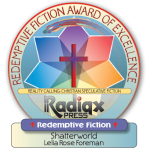
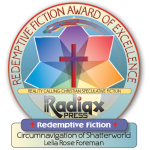
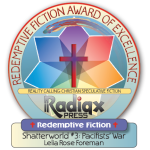
Yes, I gave all three of them individually, and as a series, Reality Calling’s Redemptive Fiction awards. The evangelical roots are showing. In my mind, these are novels for believing readers. I’m not sure non-believers will have the stomach for the blatantly Christian stance of the books. However, I am certainly praying that they do.
These are the stories of missionaries to a very foreign culture. They are realistically drawn, spiritually mature, and very complex. Many times during the reading of the books, I was made quite uncomfortable by the very realistic emotional reactions to the events of the books. But then, I’m not an emotional guy. I definitely assert that these spiritual growth struggles have the ring of Truth.
These are very good books!
Lelia, who I do not know, gave me both beta reader versions and final review copies in exchange for a hoped-for review. I am really glad I had the opportunity.
This trilogy has Shatterworld, Circumnavigation of Shatterworld, and Pacifists’ War
Don’t let the enigmatic nature of the covers or the 12 year old heroine in the first book deter you. These are seriously good novels. The basic plot is an old one: a group of persecuted Christians escapes Earth and flees to a remote barren, seemingly uninhabited planet.In the first book of the series, Rejoice is a 12 year old genius who saves the planet. In the second, she’s a teenager sharing in a missionary journey around the planet. In the third, she’s married and back to saving the planet again [well, sorta].
Rating the book as a whole
This is serious, powerful Christian fiction
I don’t want to spoil this for you at all, so I’ll be purposely vague.The world-building
It is wonderful! This is one of the best planet and colony culture descriptions I’ve read in a while. It’s not geologically or scientifically in depth, yet it’s quite believable for a former scientist, like myself. While it doesn’t match the more comfortable, traditional scifi worlds found in Ben Patterson’s galaxy, it is shared in satisfying depth. It is understandable, the suspension of dis-belief was easy, and the aliens are spectacularly enjoyable. The colony culture is irritating, realistic, and compelling. The alien culture is one of the most detailed alien ways of thinking and interacting I’ve seen in a while. It is immensely fun.In books 2 and 3, the additional alien cultures and the animal life are amazing. Through it all, the spiritual growth of the characters [as Rejoice grows up] and spiritual issues of the colonists and the aliens are realistic and compelling.
In the third book, the invaders provide a strong jolt of reality orientation to the entire world. I don’t want to say it is fun. But, it is realistic, believable, and often emotionally disturbing. The trials and joys of the colony mission are presented in an authentic manner, as far as I know. They deeply touched me, in any regard.
Spiritually, this is clear redemptive fiction



Yes, I gave all three of them individually, and as a series, Reality Calling’s Redemptive Fiction awards. The evangelical roots are showing. In my mind, these are novels for believing readers. I’m not sure non-believers will have the stomach for the blatantly Christian stance of the books. However, I am certainly praying that they do.
These are the stories of missionaries to a very foreign culture. They are realistically drawn, spiritually mature, and very complex. Many times during the reading of the books, I was made quite uncomfortable by the very realistic emotional reactions to the events of the books. But then, I’m not an emotional guy. I definitely assert that these spiritual growth struggles have the ring of Truth.
These are very good books!
Lelia, who I do not know, gave me both beta reader versions and final review copies in exchange for a hoped-for review. I am really glad I had the opportunity.
Sunday, April 24, 2016
Amazon preview link for Circumnavigation of Shatterworld
https://read.amazon.com/kp/embed?asin=B01EPPHN0K&preview=newtab&linkCode=kpe&ref_=cm_sw_r_kb_dp_M-shxb08APV48
self published Amazon link for Shatterworld
https://read.amazon.com/kp/embed?asin=B01EPP3TDK&preview=newtab&linkCode=kpe&ref_=cm_sw_r_kb_dp_u7shxb1XQQ76G
Saturday, April 23, 2016
Working on Print Version of Shatterworld Trilogy
I am formatting the books for Createspace for the print versions.
I may go insane.
I may go insane.
Friday, April 22, 2016
Interview with Annie Douglass Lima
This is an interview with a writer I know on Facebook. She kindly did a piece on Shatterworld when it first came out on her blog.
Tell us a bit about your latest work.
The Gladiator and the Guard is the second book in the Krillonian Chronicles, the first one
being The Collar and the Cavvarach. The stories take place in a world almost exactly like
our own. Although most aspects of the
culture are just about what they are currently on Earth, a few sports are
different, such as the martial art known as cavvara shil. The main difference, however, is that slavery
is legal there.
The Krillonian Empire rules much of the world. An emperor, who is never named, governs from
the capital city, Krillonia, on the continent known as Imperia. Eight separate provinces (independent nations
before they were conquered) can be found on nearby continents. Each province, plus Imperia, is allowed to
elect its own legislature and decide on many of its own laws, but the emperor
reserves the right to veto any of them and make changes as he sees fit. This seldom happens, however, and to most
people the emperor is merely a vague and distant ceremonial figure.
The prevalence of slavery is probably what would stand
out the most to visitors from Earth.
There are nearly as many slaves in the city of Jarreon, where both books
take place, as free people, and they are easily identified by the steel collars they are required to wear locked around their necks. From each collar
hangs a tag inscribed with the slave’s name, their owner’s name, and a copy of
their owner’s signature. On the back of
the tag is their owner’s phone number and a bar code that can be scanned to
access additional information.
Many families own one or more slaves who do their
housework and yardwork. Businesses often
own a large number of slaves, usually for manual labor, though some are trained
for more complex tasks. Those who don’t own their own slaves may “hire in” one
belonging to someone else. The accepted
rate for an hourly wage is two-thirds the amount that a free person would earn
for equivalent labor (the money goes to the slave’s owner, of course).
Here’s the back-cover blurb for The Collar and the Cavvarach :
Bensin, a teenage
slave and martial artist, is desperate to see his little sister freed. But only
victory in the Krillonian Empire's most prestigious tournament will allow him
to secretly arrange for Ellie's escape. Dangerous people are closing in on her,
however, and Bensin is running out of time.
With his one hope fading quickly away, how can Bensin save Ellie from a
life of slavery and abuse?
And the blurb for The
Gladiator and the Guard :
Bensin, a teenage slave and martial artist, is just one victory away from freedom. But after he is accused of a crime he didn’t commit, he is condemned to the violent life and early death of a gladiator. While his loved ones seek desperately for a way to rescue him, Bensin struggles to stay alive and forge an identity in an environment designed to strip it from him. When he infuriates the authorities with his choices, he knows he is running out of time. Can he stand against the cruelty of the arena system and seize his freedom before that system crushes him?
Which characters in your books
most interested you while you wrote? Why?
All my
characters are special to me in different ways (every author has to say that,
right?). One that was especially fun to
write, though, is not actually even a real character. Steene is constantly arguing with his
conscience over the issue of owning a slave.
He imagines his conscience’s exact words as it responds to him, complete
with body language. I enjoyed giving his
conscience a little personality of its own.
For example, after one particularly lame argument on Steene’s part, “his
conscience rolled its eyes and refused to dignify that with a response.”
Some of
my characters seemed to take matters into their own hands and decide they
wanted a different role than the one I had planned for them. For example, City Watch officer (the
equivalent of a police officer) Kalgan Shigo ended up playing a much bigger
part than I had anticipated. While still
a minor character, he is a more important one than he was originally supposed
to be, and he plays a different – and much needed – role in Bensin’s life. I loved watching him take charge and step
into the position he wanted!
However,
my favorite character in these books is definitely Bensin. The struggles he is forced to go through make
him stronger, and I admire him for his perseverance and determination to meet
his goals no matter what. He is willing
to sacrifice himself for those he cares about, and while his choices aren’t
always the wisest, he is committed to doing what he feels is right. Society is against him, since he’s a slave
and has few rights, but that doesn’t stop him.
Where did you grow up, and
how did your childhood affect your writing?
I
grew up in Kenya, where I lived from age 3 to 17. My family has never had a
television, nor did we want one, and I spent my childhood immersed in books.
That instilled in me a love of reading, which soon turned into a love of
writing. That love has never left, and I have never regretted not owning a TV
(my husband and I still don’t).
I've heard that you live in Taiwan now. Tell us
about that. Has it influenced your writing at all?
My husband and I moved to the
island of Taiwan, just off the east coast of China, almost nine years ago. I teach fifth grade in an international
school in the city of Taichung and love it (both the job and the
location). The hardest part about living
here is that, even after all this time, I speak very little Chinese; and most
people in Taiwan don’t speak much English.
Linguistic difficulties have been the cause of countless awkward moments
for me! But other than that, life here
is great. I enjoy the culture and have
found people to be very welcoming and tolerant of my stumbling attempts to
communicate. The food here is great, too
– “Chinese” food in America just can’t compare!
I’ve based a few details of
Jarreon’s culture on the culture in Taiwan, where I live. The convenient boxed meals and the importance
of New Year, for example. In addition,
competition winners receive award money in red envelopes. As in Taiwan, some people in Jarreon’s lower
class chew betel nut, a legal drug sold in shops decorated with flashing
colored lights.
What books are
similar to yours (ie: if a reader enjoys X, they'd like yours)?
While
this isn’t technically a dystopian story, fans of the dystopian genre would
probably enjoy both of these books. One
of my beta readers said The Collar and
the Cavvarach reminded her of The
Hunger Games (but she liked my book better!).
Have you written any other books besides the
two in this series?
Yes; I have a fantasy series
called the Annals of Alasia, with three books in it so far: Prince of Alasia, In the Enemy’s Service, and Prince of Malorn. They take place in overlapping time periods
and can be read in any order. I also have a little book of “interviews” that I
conducted with characters in that series; it is available for free to anyone
who signs up for my mailing list. In addition, I have written a short puppet script and compiled five separate anthologies of my
students’ poetry, with proceeds going to charity (all available through my Amazon author page).
What are your upcoming writing plans?
There will be at least one
more book in the Krillonian Chronicles,
though I’m tossing around ideas that may eventually lead to other stories set
in the same world. In the meantime, I’m working on a final book in my Annals of Alasia fantasy series, called King of Malorn, which should be ready to publish in the next few
months. I’m also eager to get back to Heartsong,
the science fiction novel that I drafted for last year’s NaNoWriMo. I hope to
have that one polished and ready for publication in another year or so. Lots of
irons in the fire!
Where can readers connect with you online?
Twitter: https://twitter.com/princeofalasia
Goodreads: http://bit.ly/ADLimaOnGoodreads
Google+: http://bit.ly/ADLimaOnGooglePlus
Amazon Author Page: http://bit.ly/AnnieDouglassLimaOnAmazon
LinkedIn: http://bit.ly/ADLimaOnLinkedIn
Monday, April 18, 2016
This was a fun interview.
https://faithandfantasyalliance.wordpress.com/2016/04/18/into-the-mind-of-lelia-rose-foreman/#comments
Welcome, Spekkies, to our interview with author Lelia Rose Foreman!
Thanks for joining us, Lelia!
What are you most looking forward to about attending this year’s conference?
There’s two things: I am looking forward to some more great lectures and I’m looking forward to meeting people I otherwise only know on Facebook.
Will you be coming in costume to the Awards Banquet?
That depends. If I can still fit in my costume, I will.
How many books do you own?
A couple hundred I think. I can’t go and count because most of them are hiding in boxes waiting for my new house to be built. When I homeschooled, I owned thousands. I’ve sent five pallets of books to Rwanda.
How many books have you read so far this year?
Maybe forty. Maybe fifty. I don’t keep track very well. As soon as I finish a book I give it away, or take to a used book store, or donate to a thrift store.
What book has made the most impact on you?
I assume you mean besides the Bible. There are two main books I can think of off the top
of my head. In the fifth grade I started on my mother’s row of Reader’s Digest Condensed Books. When I reached and read Fall of Moon Dust by Arthur C. Clarke, it was like an instant
addiction to cocaine. I proceeded to start with the As and read every single science fiction book in the local library. (There were fewer of them then. They filled only one five feet wide by seven feet tall bookcase.) The second book I read at age thirteen: God’s Smuggler by Brother Andrew. That changed my walk with God.
How many books did you write before being published?
I’m going to go with three unless I remember some more before the interview is over. I also wrote a number of short stories and things that did not become finished books.
What was the inspiration behind your most recently published book?
I attended a science-fiction convention in Austin, Texas I think it was. On the strength of selling a short story to Damon Knight, I was invited to speak on a panel that was to analyze Jeremy Somebody’s doomsday book about how we mustn’t muck around with sacred evolution and because we (collective humanity) were mucking around, we were all gonna die. I had the fun of watching an entire roomful of people have a collective heart attack when I said that after four years of studying biology, biochemistry etc. I no longer believed in evolution. I certainly did not consider it sacred. So that was a bit of a ruckus.
After that I attended a lecture on the creation of aliens. An artist did sketches as the audience threw out ideas. First we determined what sort of planet the alien was on, the geography, day length, atmosphere etc. Then we began on the body of the alien that the artist arbitrarily named Irving. Oh, that was fun. After the conference, I could not get that alien out of my mind. I changed his name to Ur-Veena, wrote a short story about him and sent it to Analog. Stanley Schmidt wrote back that the story wasn’t quite special enough, but could I send him another? At the time I didn’t HAVE another story and was not experienced enough to understand what a big deal his rejection was. So I set it aside.
We moved from San Antonio to North Pole, Alaska, again living near the AF base but not on the base because one of our children screamed. A lot. I still thought about Ur-Veena from time to time and wondered if I would ever write again as I raised five children, two of whom were brain-damaged. One day as I walked out of a closet, I suddenly had the story. I literally stood there with my hands out, palms cupped upward. I looked at my left hand. That held the beginning of the story. I looked at my right hand. That held the ending. I wasn’t sure what went in the middle yet, but was sure I could find it, and I did. The seventy-sixth publisher I sent the book to accepted it. Over twenty years later I have the rights to the book. I write differently now than I did then, so I’ve rewritten Shatterworld and the two sequels, Circumnavigation of Shatterworld and Pacifists’ War, and plan to self-publish soon.
What is your goal in and for your writing?
Let’s make that goals. At one time I had the goal or ambition to win a Hugo. Always I have
wanted to think through alien places. For some reason I’m really fond of ‘different.’ In a way that I am unable to articulate coherently, I want to ‘touch’ people. I would like to think I want to glorify God. Well, I’ve given up on the Hugo. Now I want the Shatterworld trilogy and the YA science fiction series I’m working on with my oldest son (Tales of Talifar) to make enough money that the tithe will support a pastor I love in Rwanda, and the rest will contribute to the house we’re building for us and our daughter and her caregiver to age in.
We are looking forward to fellowshipping with you at this year’s conference, Lelia! Thanks for giving us a peek into your mind.

Lelia Rose Foreman has raised and released five children as the USAF moved the family to Japan, Texas, and Alaska. She and her husband now live in the Vancouver that isn’t in Canada. They lead boring lives, and after the terror they have lived through, they like boring. Despite that, she tries to write exciting stories.
Into the Mind of Lelia Rose Foreman
Thanks for joining us, Lelia!
What are you most looking forward to about attending this year’s conference?
There’s two things: I am looking forward to some more great lectures and I’m looking forward to meeting people I otherwise only know on Facebook.
Will you be coming in costume to the Awards Banquet?
That depends. If I can still fit in my costume, I will.
How many books do you own?
A couple hundred I think. I can’t go and count because most of them are hiding in boxes waiting for my new house to be built. When I homeschooled, I owned thousands. I’ve sent five pallets of books to Rwanda.
How many books have you read so far this year?
Maybe forty. Maybe fifty. I don’t keep track very well. As soon as I finish a book I give it away, or take to a used book store, or donate to a thrift store.
What book has made the most impact on you?
I assume you mean besides the Bible. There are two main books I can think of off the top
of my head. In the fifth grade I started on my mother’s row of Reader’s Digest Condensed Books. When I reached and read Fall of Moon Dust by Arthur C. Clarke, it was like an instant
addiction to cocaine. I proceeded to start with the As and read every single science fiction book in the local library. (There were fewer of them then. They filled only one five feet wide by seven feet tall bookcase.) The second book I read at age thirteen: God’s Smuggler by Brother Andrew. That changed my walk with God.
How many books did you write before being published?
I’m going to go with three unless I remember some more before the interview is over. I also wrote a number of short stories and things that did not become finished books.
What was the inspiration behind your most recently published book?
I attended a science-fiction convention in Austin, Texas I think it was. On the strength of selling a short story to Damon Knight, I was invited to speak on a panel that was to analyze Jeremy Somebody’s doomsday book about how we mustn’t muck around with sacred evolution and because we (collective humanity) were mucking around, we were all gonna die. I had the fun of watching an entire roomful of people have a collective heart attack when I said that after four years of studying biology, biochemistry etc. I no longer believed in evolution. I certainly did not consider it sacred. So that was a bit of a ruckus.
After that I attended a lecture on the creation of aliens. An artist did sketches as the audience threw out ideas. First we determined what sort of planet the alien was on, the geography, day length, atmosphere etc. Then we began on the body of the alien that the artist arbitrarily named Irving. Oh, that was fun. After the conference, I could not get that alien out of my mind. I changed his name to Ur-Veena, wrote a short story about him and sent it to Analog. Stanley Schmidt wrote back that the story wasn’t quite special enough, but could I send him another? At the time I didn’t HAVE another story and was not experienced enough to understand what a big deal his rejection was. So I set it aside.
We moved from San Antonio to North Pole, Alaska, again living near the AF base but not on the base because one of our children screamed. A lot. I still thought about Ur-Veena from time to time and wondered if I would ever write again as I raised five children, two of whom were brain-damaged. One day as I walked out of a closet, I suddenly had the story. I literally stood there with my hands out, palms cupped upward. I looked at my left hand. That held the beginning of the story. I looked at my right hand. That held the ending. I wasn’t sure what went in the middle yet, but was sure I could find it, and I did. The seventy-sixth publisher I sent the book to accepted it. Over twenty years later I have the rights to the book. I write differently now than I did then, so I’ve rewritten Shatterworld and the two sequels, Circumnavigation of Shatterworld and Pacifists’ War, and plan to self-publish soon.
What is your goal in and for your writing?
Let’s make that goals. At one time I had the goal or ambition to win a Hugo. Always I have
wanted to think through alien places. For some reason I’m really fond of ‘different.’ In a way that I am unable to articulate coherently, I want to ‘touch’ people. I would like to think I want to glorify God. Well, I’ve given up on the Hugo. Now I want the Shatterworld trilogy and the YA science fiction series I’m working on with my oldest son (Tales of Talifar) to make enough money that the tithe will support a pastor I love in Rwanda, and the rest will contribute to the house we’re building for us and our daughter and her caregiver to age in.
We are looking forward to fellowshipping with you at this year’s conference, Lelia! Thanks for giving us a peek into your mind.

Lelia Rose Foreman has raised and released five children as the USAF moved the family to Japan, Texas, and Alaska. She and her husband now live in the Vancouver that isn’t in Canada. They lead boring lives, and after the terror they have lived through, they like boring. Despite that, she tries to write exciting stories.
Tuesday, April 5, 2016
Indie Author and Book Fair
I'm getting excited as the Indie Author and Book Fair at Cannon Beach draws nearer. I'm sharing a table with Aletha Bakke. Sunday, April 10, 12:30 to 3pm, next to Jupitor's Books.
And it might not rain!
And it might not rain!
Saturday, April 2, 2016
Another blurb for Circumnavigation
I got another blurb for Circumnavigation.
Circumnavigation, like its predecessor Shatterworld,
brought me back to the days in my childhood spent reading novels such as A
Wrinkle in Time. It is the tale of a wondrous science fiction world that
includes amazing and inventive creatures, and is written in a unique voice that
melds past and future.
Kat Heckenbach
Award winning author of YA fantasy Finding Angel and
Seeking Unseen
Angel doesn’t remember her magical heritage…but it remembers her.
Subscribe to:
Posts (Atom)
